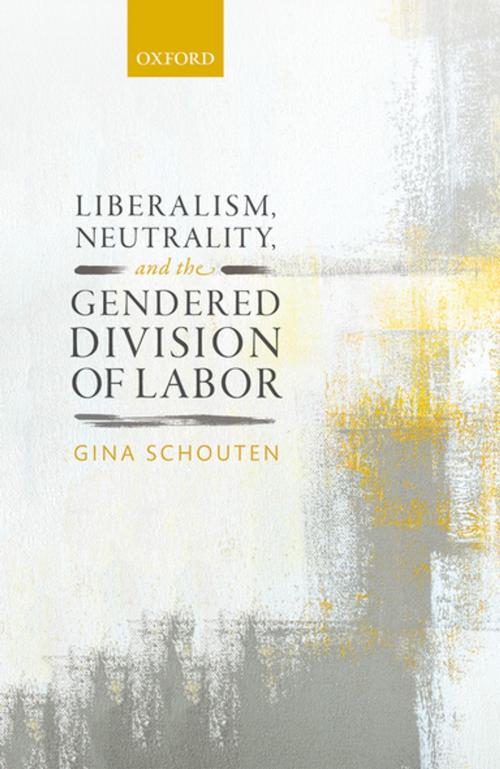Liberalism, Neutrality, and the Gendered Division of Labor
Nonfiction, Social & Cultural Studies, Political Science, Politics, History & Theory, Religion & Spirituality, Philosophy| Author: | Gina Schouten | ISBN: | 9780192542465 |
| Publisher: | OUP Oxford | Publication: | May 2, 2019 |
| Imprint: | OUP Oxford | Language: | English |
| Author: | Gina Schouten |
| ISBN: | 9780192542465 |
| Publisher: | OUP Oxford |
| Publication: | May 2, 2019 |
| Imprint: | OUP Oxford |
| Language: | English |
This book defends progressive political interventions to erode the gendered division of labor as legitimate exercises of coercive political power. The gendered division of labor is widely regarded as the linchpin of gender injustice. The process of gender equalization in domestic and paid labor allocations has stalled, and a growing number of scholars argue that, absent political intervention, further eroding of the gendered division of labor will not be forthcoming anytime soon. Certain political interventions could jumpstart the stalled gender revolution, but beyond their prospects for effectiveness, such interventions stand in need of another kind of justification. In a diverse, liberal state, reasonable citizens will disagree about what makes for a good life and a good society. Because a fundamental commitment of liberalism is to limit political intrusion into the lives of citizens and allow considerable space for those citizens to act on their own conceptions of the good, questions of legitimacy arise. Legitimacy concerns the constraints we must abide by as we seek collective political solutions to our shared social problems, given that we will disagree, reasonably, both about what constitutes a problem and about what costs we should be willing to incur to fix it. The interventions in question would effectively subsidize gender egalitarian lifestyles at a cost to those who prefer to maintain a traditional gendered division of labor. In a pluralistic, liberal society where many citizens reasonably resist the feminist agenda, can we legitimately use scarce public resources to finance coercive interventions to subsidize gender egalitarianism? This book argues that they can, and moreover, that they can even by the lights of political liberalism, a particularly demanding theory of liberal legitimacy.
This book defends progressive political interventions to erode the gendered division of labor as legitimate exercises of coercive political power. The gendered division of labor is widely regarded as the linchpin of gender injustice. The process of gender equalization in domestic and paid labor allocations has stalled, and a growing number of scholars argue that, absent political intervention, further eroding of the gendered division of labor will not be forthcoming anytime soon. Certain political interventions could jumpstart the stalled gender revolution, but beyond their prospects for effectiveness, such interventions stand in need of another kind of justification. In a diverse, liberal state, reasonable citizens will disagree about what makes for a good life and a good society. Because a fundamental commitment of liberalism is to limit political intrusion into the lives of citizens and allow considerable space for those citizens to act on their own conceptions of the good, questions of legitimacy arise. Legitimacy concerns the constraints we must abide by as we seek collective political solutions to our shared social problems, given that we will disagree, reasonably, both about what constitutes a problem and about what costs we should be willing to incur to fix it. The interventions in question would effectively subsidize gender egalitarian lifestyles at a cost to those who prefer to maintain a traditional gendered division of labor. In a pluralistic, liberal society where many citizens reasonably resist the feminist agenda, can we legitimately use scarce public resources to finance coercive interventions to subsidize gender egalitarianism? This book argues that they can, and moreover, that they can even by the lights of political liberalism, a particularly demanding theory of liberal legitimacy.















